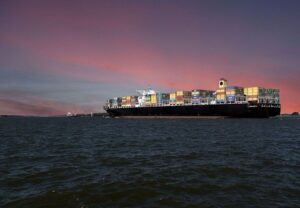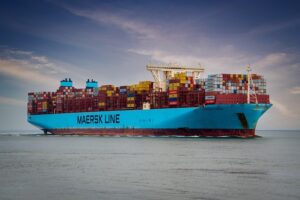Despite their robust design, shipping containers face significant fire risks, leading to substantial losses and disruptions. To mitigate these hazards, fire-resistant shipping containers equipped with advanced safety features like automatic suppression systems are gaining prominence. These containers, constructed with fire-retardant materials and sealed seams, ensure cargo protection during sea, intermodal, and land transport. The global demand for these specialized products stems from safety regulations, the need for reliable cargo protection, and enhanced logistics efficiency. Adhering to best practices, including proper packing and regular maintenance, further reduces risks, ensuring safe transportation of sensitive goods via ISO-standard containers.
“In the global realm of shipping, protecting valuable cargo is paramount. Fire-resistant shipping containers have emerged as a game-changer, offering robust solutions to mitigate risks. This article delves into the critical aspect of fire safety in maritime transportation, exploring common hazards and their impact on sensitive goods. We dissect the construction and innovative features of these specialized containers, highlighting their benefits.
Furthermore, it provides best practices for ensuring safe containerized cargo transport, emphasizing the importance of fire-resistant measures in today’s digital era.”
- Understanding Fire Risks in Shipping: Common Causes and Impact
- The Role of Fire-Resistant Shipping Containers: Construction and Features
- Benefits of Implementing Fire Protection in Containerized Cargo
- Best Practices for Ensuring Safe Transportation of Sensitive Goods
Understanding Fire Risks in Shipping: Common Causes and Impact
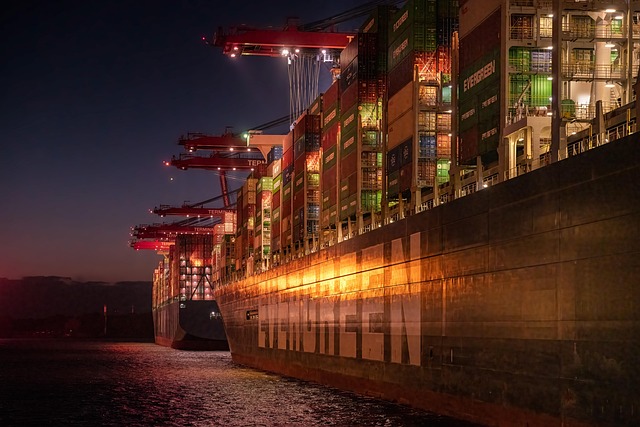
Understanding Fire Risks in Shipping: Common Causes and Impact
In the world of global trade, shipping containers play a pivotal role in facilitating intermodal shipping, enabling the efficient transport of cargo across land and sea. However, even within these seemingly impenetrable ISO shipping containers, fire risks can arise, posing significant threats to sensitive cargo. Common causes include electrical failures, faulty wiring, or even intentional acts of arson during transit or storage at shipping container depots.
The impact of a fire in a shipping container can be devastating. Not only does it lead to substantial financial losses due to damage to the goods and the container itself, but it also disrupts supply chain logistics and may cause delays in delivery. In addition, fires release hazardous fumes and smoke, posing risks to port workers and nearby communities, underscoring the importance of fire-resistant shipping containers as a key component of modern shipping container logistics and industry trends.
The Role of Fire-Resistant Shipping Containers: Construction and Features
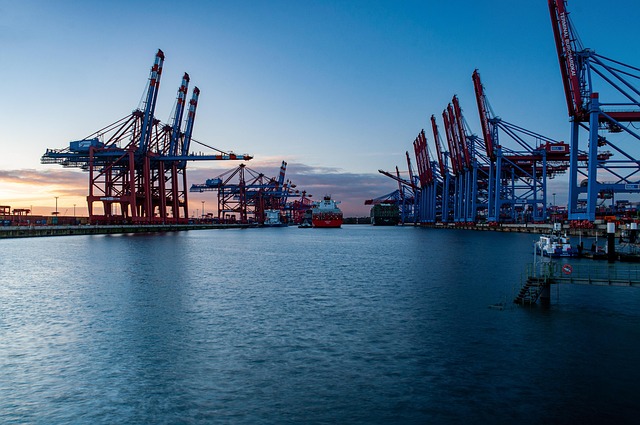
Fire-resistant shipping containers play a pivotal role in safeguarding valuable and sensitive cargo during transportation. These specialized containers are designed to withstand extreme conditions, including high temperatures and flames, ensuring that goods remain protected from fire hazards prevalent in various shipping environments. Typically constructed with robust materials like steel reinforced with fire-retardant coatings, these containers offer an impenetrable barrier against flames and heat transfer.
Key features enhancing their fire resistance include insulated walls, floors, and roofs, along with sealed seams and doors that prevent the entry of flame and smoke. Many fire-resistant shipping containers also incorporate advanced safety mechanisms such as automatic fire suppression systems and alarm devices. These innovative designs not only meet stringent international standards but also cater to diverse industry needs, from intermodal shipping containers for efficient transport between modes to storage shipping containers providing secure long-term solutions. The global shipping container logistics industry is witnessing a surge in demand for these specialized products, driven by increasing safety concerns, industry regulations, and the need for reliable, robust cargo protection during sea shipping or land transport.
Benefits of Implementing Fire Protection in Containerized Cargo
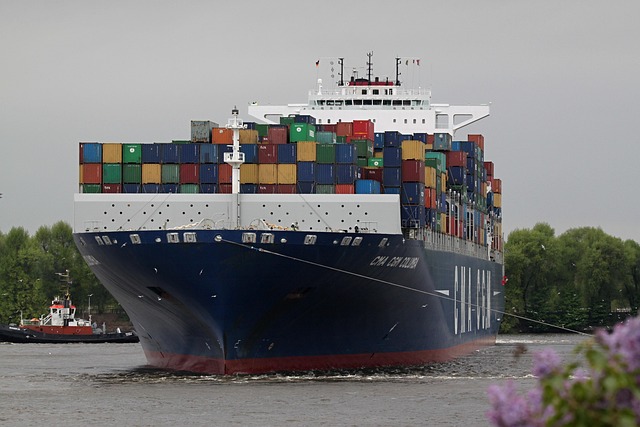
Implementing fire protection in containerized cargo offers a multitude of benefits, enhancing safety and security across various transportation modes, including sea shipping containers, intermodal shipping containers, and cargo shipping containers. By integrating fire-resistant features into storage shipping containers, shipping container rental and leasing services can significantly reduce the risk of devastating fires during transit and storage. This is especially critical for valuable and sensitive goods that require specialized handling.
Fire protection measures not only safeguard cargo but also streamline shipping container logistics and depot operations. Modern ISO shipping containers equipped with fire suppression systems or enhanced structural integrity can improve overall efficiency in shipping container transport and storage. Shipping container manufacturer innovations in materials, design, and accessories contribute to a robust shipping container industry trend: providing more secure, resilient, and fire-resistant solutions for diverse cargo needs, ensuring peace of mind for shippers and carriers alike.
Best Practices for Ensuring Safe Transportation of Sensitive Goods
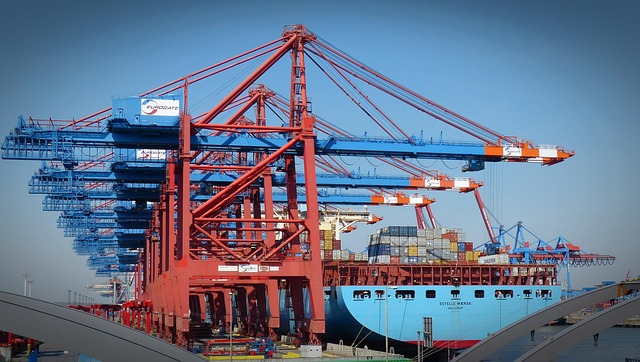
When transporting sensitive goods, adhering to best practices is paramount to ensure their safety and security during transit. One of the most effective strategies involves utilizing fire-resistant shipping containers, designed specifically to safeguard contents from potential flames and smoke damage. These specialized containers are built with advanced materials that inhibit the spread of fire, offering a robust barrier against destruction.
Implementing a comprehensive approach includes proper packing techniques, such as using flame-retardant packaging materials and ensuring items are spaced adequately to prevent overcrowding. Additionally, regular maintenance checks on shipping containers, including inspection for any signs of damage or wear, are crucial. Reputable shipping container suppliers often provide maintenance services and offer various accessories to enhance protection, like temperature control systems and advanced locking mechanisms. Opting for ISO-standard containers is another wise decision, as they meet global regulations, ensuring compatibility across different legs of the journey, whether by sea, rail, or road (intermodal shipping containers).
Fire-resistant shipping containers are a game-changer in safeguarding sensitive cargo from the devastating effects of fire. By understanding the common causes of fires at sea and implementing best practices, the shipping industry can significantly reduce risks. These specialized containers, designed with advanced fire protection features, offer unparalleled safety for valuable goods. Adopting fire-resistant solutions not only protects assets but also ensures the smooth operation of global supply chains, making them an essential component in modern logistics.








